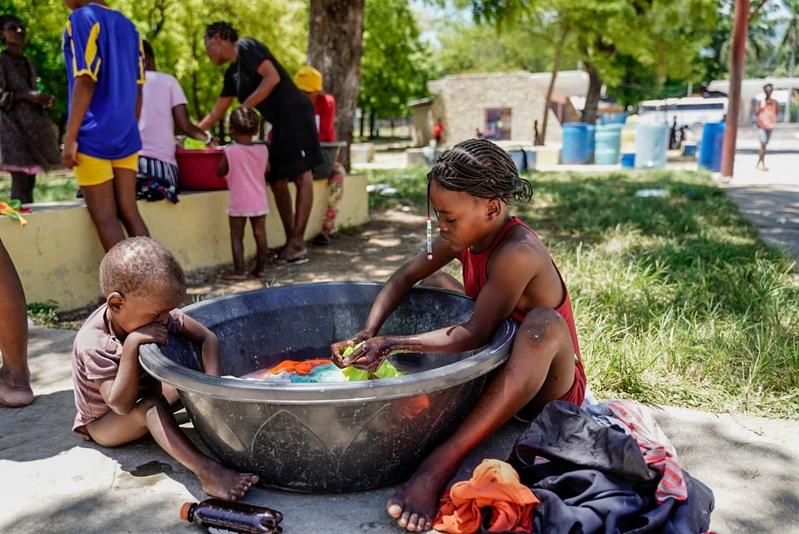 Children take refuge at a Catholic school in Port-au-Prince, Haiti, on July 30, 2022, after escaping gang violence in the Cité Soleil area. (RICHARD PIERRIN / AFP)
Children take refuge at a Catholic school in Port-au-Prince, Haiti, on July 30, 2022, after escaping gang violence in the Cité Soleil area. (RICHARD PIERRIN / AFP)
PORT-AU-PRINCE - Haiti on Sunday said at least seven people have died of cholera in a surprise return of the disease that comes as the nation is paralyzed by a gang blockade that has triggered shortages of fuel and clean drinking water.
The disease killed some 10,000 people through a 2010 outbreak that has been blamed on a United Nations peacekeeping force. The Pan American Health Organization in 2020 said Haiti had gone a year with no confirmed cholera cases.
Caribbean Bottling Company, a key supplier of bottled water, said on Sunday that it could no longer continue producing and distributing water because it had run out of diesel fuel, which is critical to its supply chain
"According to the information we have, the number of deaths is about 7 to 8," said Health Ministry General Director Laure Adrien during a press conference, adding that officials were struggling to get information from hospitals.
"There was one death during the day today."
The Health Ministry earlier confirmed one case in the Port-au-Prince area and that there were suspect cases in the town of Cite Soleil outside the capital, which was the site of vicious gang turf wars in July.
Gangs have since last month been blocking the country's main fuel port in protest over last month's announcement of a fuel price hike. Many hospitals have shut down or scaled back operations for lack of fuel to power generators.
Basic transit is now impossible for most citizens.
ALSO READ: Thousands protest in Haiti over crime and inflation
Caribbean Bottling Company, a key supplier of bottled water, said on Sunday that it could no longer continue producing and distributing water because it had run out of diesel fuel, which is critical to its supply chain.
Cholera causes uncontrollable diarrhea. The disease is typically spread by water contaminated with the feces of a sick person, meaning that clean drinking water is critical for preventing its spread.



